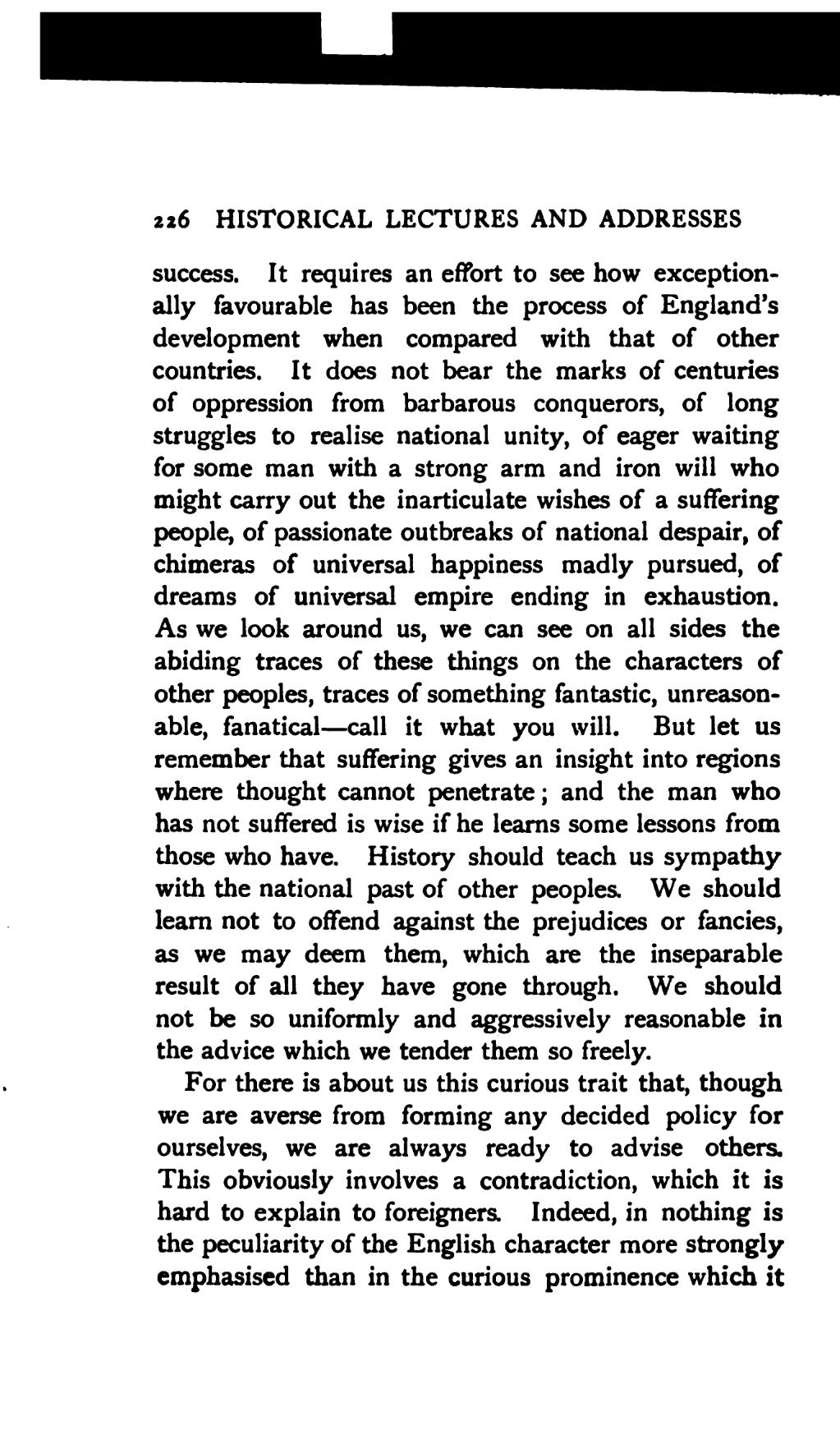success. It requires an effort to see how exceptionally favourable has been the process of England's development when compared with that of other countries. It does not bear the marks of centuries of oppression from barbarous conquerors, of long struggles to realise national unity, of eager waiting for some man with a strong arm and iron will who might carry out the inarticulate wishes of a suffering people, of passionate outbreaks of national despair, of chimeras of universal happiness madly pursued, of dreams of universal empire ending in exhaustion. As we look around us, we can see on all sides the abiding traces of these things on the characters of other peoples, traces of something fantastic, unreasonable, fanatical—call it what you will. But let us remember that suffering gives an insight into regions where thought cannot penetrate; and the man who has not suffered is wise if he learns some lessons from those who have. History should teach us sympathy with the national past of other peoples. We should learn not to offend against the prejudices or fancies, as we may deem them, which are the inseparable result of all they have gone through. We should not be so uniformly and aggressively reasonable in the advice which we tender them so freely.
For there is about us this curious trait that, though we are averse from forming any decided policy for ourselves, we are always ready to advise others. This obviously involves a contradiction, which it is hard to explain to foreigners. Indeed, in nothing is the peculiarity of the English character more strongly emphasised than in the curious prominence which it
